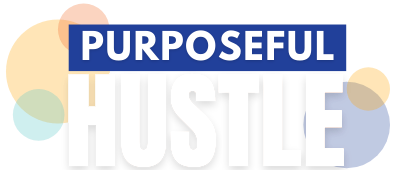Authentic happiness, joy, and fulfillment in life is derived by leading a life that aligns with your purpose and passion. Purpose is the reason you do what you do; the motivation behind your actions and what you decide to pursue. Passion can be thought of as emotions or doing things that make you feel good. It’s tied to our innate abilities, talents, and desires. When you combine these things to fuel your career or business, it then means your life’s work is for a reason and for specific people that will benefit from it.
As a purposeful entrepreneur or consultant, knowing what you want to do and how you want to do it is good, but you also have to figure out who you want to do it for and where you can find these potential customers. Here are some ways you can start to find the right clients for your business:
CLIENT RESEARCH
Audience research is designed to establish the size, composition, and characteristics of a group of individuals who are your potential customers. They are the people that essentially make up your target audience. This is necessary for you to understand your customers and ensure your product or service matches their needs or pain points. There are three types of data points you can reference to build up your customer research: demographic, psychological, and behavioral data.
Demographics looks at your target audience’s socio-economic data which includes gender, age, income level, occupation, location, marital status, education, religion, family size, ethnicity, social class, among others.
Psychographics are more details about what your audience might be interested in, their beliefs, life goals or opinions. This is needed to get a deeper understanding of your audience or potential clients so you can then start to curate brand messaging that resonates with them.
Behavioral data then speaks to how your potential clients interact with technology, what different platforms they use, and when they’re using them. This will translate into how they use social media and other relevant buying habits including brand preferences and product usage.
To start to get data on the people you want to serve with your purpose-driven business, you can use the analytics available on your social platforms and website. You can also research your competition and see who they’re serving and how. At Flying Elephant, we use Instagram, LinkedIn, Facebook, Google Analytics, and HubSpot to track the behavior of our audience and what content is serving them best.
GO WHERE CLIENTS ARE
This is pretty straight forward. Occupy the spaces that your ideal clients are. In a world that is now digital, there are various platforms that you can access different people. The key is to focus only on the platforms that your clients are on. For one of my businesses, Uplifting Impact, after doing our research, our target audiences included Human Resource and Diversity, Equity and Inclusion leaders, enthusiastic learners, and business owners. Based on that, we found that our future clients were using mainly LinkedIn and Facebook. So naturally, we’re active on both platforms!
Once you’ve then found where they are, go mix and mingle with your future clientele. We often refer to this as community management: investing time and energy in being part of an online community. Social media is a two-way street--it’s not enough just to post every now and then. To build a community, you need to foster interaction and conversation. Then you can position yourself with a unique selling proposition.
You can also use platforms that already have willing customers looking for specific services. Lots of businesses get their start and find growth on freelance platforms like Upwork, Fiverr, Freelancer and more. You can go to these platforms and see potential clients with defined problems. Scout out projects that align with your business’ goals, products and services. The key is to clearly state your purpose on these channels so people will know, not just what you do, but why you do it.
--
I hope these tips have helped you to define who it is that your purpose-driven business will serve and how to find them. If you’re launching a business or consultancy, you likely want it to mirror your passions and purpose. No matter what you do, and how you do it, ensure that your ideal audience and community is front and center in your plans!








Leave a Comment